MercoPress. South Atlantic News Agency
Tag: human rights
-
Wednesday, March 14th 2012 - 02:01 UTC
Brazilian prosecutors unveil first criminal charges for crimes committed in 1970

Brazilian prosecutors on Tuesday unveiled the first criminal charges for crimes committed during the two-decade military dictatorship which ended almost a quarter of a century ago.
-
Wednesday, February 15th 2012 - 05:28 UTC
Argentine labour accuses CFK of “escalating repression” and endangering human rights policy
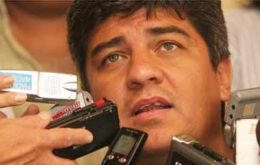
Argentina’s organized labour hit back at President Cristina Fernandez and expressed concern over what it described the “escalation” of government repression and hoped the country keeps to state policies of persuasion and unrestricted respect for human rights.
-
Friday, December 9th 2011 - 07:08 UTC
UN expert calls on Argentina to improve living conditions of indigenous groups

A United Nations expert urged Argentina to strengthen its measures to protect the human rights of indigenous groups as well as their rights to land ownership and education, adding that a mechanism to establish dialogue between them and the Government is urgently needed.
-
Friday, October 21st 2011 - 02:00 UTC
Truth committee in Brazil but with no review of past human rights’ crimes
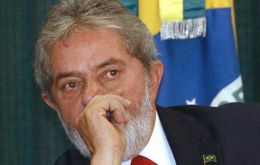
Brazilian Senate Constitution and Justice Committee approved this week the bill for the creation of a National Truth Commission to research unsolved serious crimes committed between 1946 and 1988, which includes the controversial military dictatorship period from 1964 to 1985.
-
Tuesday, July 5th 2011 - 05:57 UTC
Uruguay re-opens human rights violations from the 1973/1985 military regime
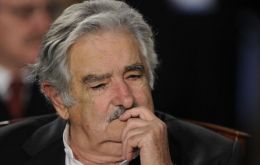
Uruguay’s government announced June 27 that it will reopen more than 80 human rights violations allegedly committed during the 1973-85 military dictatorship. The decision follows a long legislative battle but nevertheless remains highly controversial since the latest opinion polls indicate a majority of Uruguayans, 55%, want an end to the discussion.
-
Wednesday, June 22nd 2011 - 23:11 UTC
Argentina’s Clarin owner siblings to have DNA blood tests on Friday

The (adopted) heirs of one of Argentina’s most powerful media conglomerates will have blood samples taken in a Buenos Aires hospital on Friday after they decided to voluntarily have DNA tests to determine whether they coincide with DNA samples of relatives from people killed during the Argentine dictatorship (1976/1983).-
-
Sunday, June 19th 2011 - 23:10 UTC
Clarin family yields to growing pressure from Argentine government
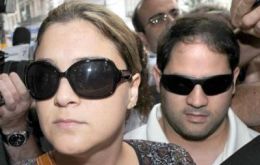
The adopted children of the influential Argentine media conglomerate ‘Clarin’ have agreed to have their blood drawn for DNA analysis. Blood samples from siblings Marcela and Felipe Noble Herrera will be checked at Argentina’s National Genetic Data Bank (BNDG).
-
Sunday, June 19th 2011 - 09:47 UTC
Argentina: “Mothers on the March Again in Argentina—Into Scandal”

The Wall Street Journal in an article credited to Matt Moffett, tells the story of how the respected human rights group, Mothers of Plaza de Mayo and close ally of Argentine president Cristina Fernandez de Kirchner are embroiled in a controversy over misused funds.
-
Friday, June 17th 2011 - 17:02 UTC
“Corruption in Argentina; the mother of all scandals” by The Economist

Under the heading of “Corruption in Argentina: the mother of all scandals?”, The Economist edition of this week has an article on the controversy surrounding the once-revered human rights group Mothers of Plaza de Mayo.
-
Friday, June 17th 2011 - 05:40 UTC
Bonafini says she “has nothing to hide” and send Schoklenders “to jail forever”
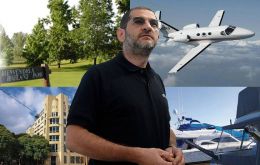
The head of Argentina’s Mothers of the Plaza de Mayo organization, Hebe de Bonafini, minimized on Thursday the recent series of judicial raids performed on the organization’s headquarters and assured that “she has nothing to hide.”
